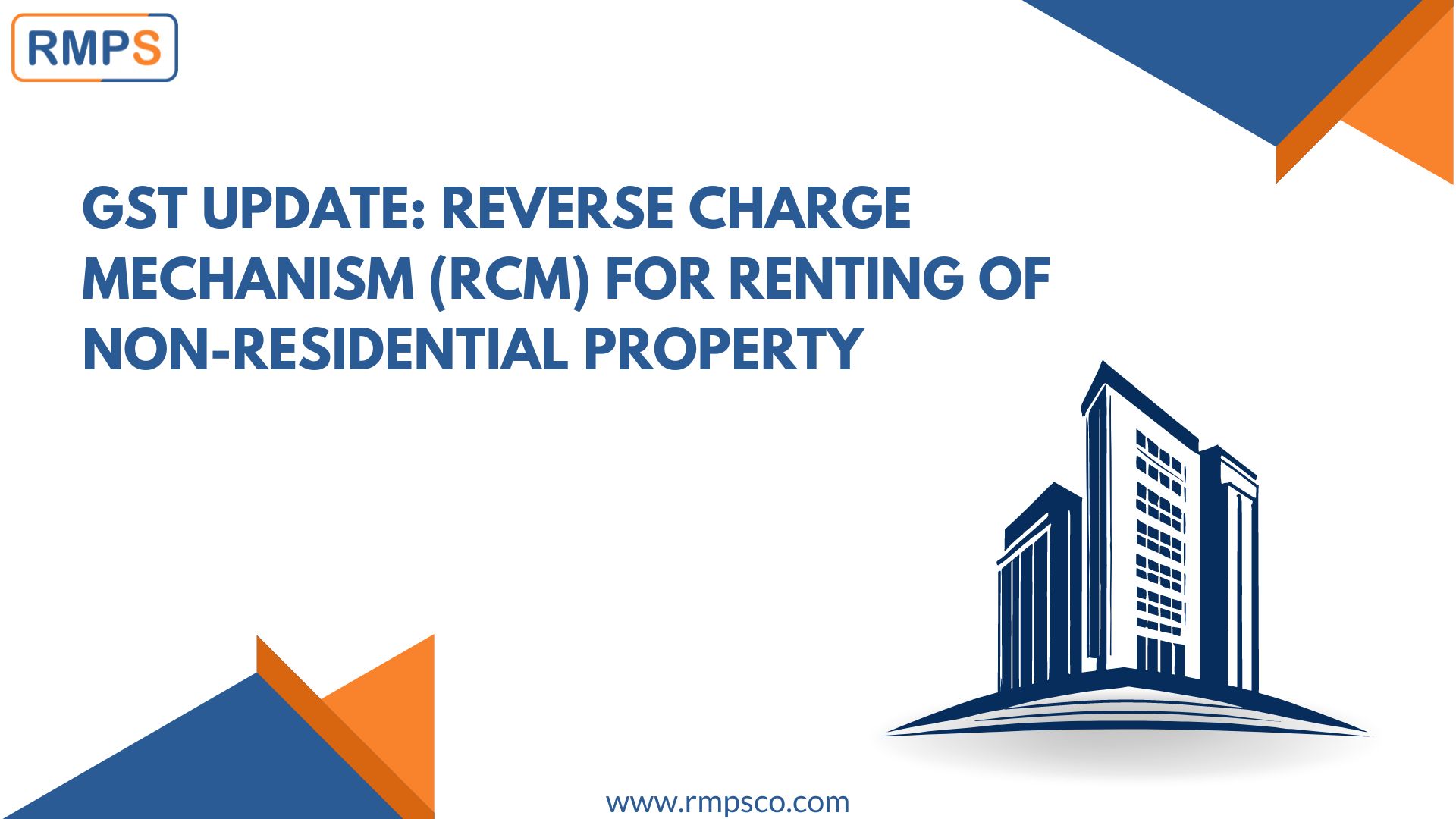
As of October 10, 2024, businesses renting non-residential properties will need to comply with a new GST rule. Under Notification No. 09/2024-Integrated Tax (Rate), the Reverse Charge Mechanism (RCM) applies when renting non-residential properties from an unregistered supplier.
Key Points:
- The new rule affects commercial properties such as offices, shops, warehouses, and industrial spaces.
- If the property owner is unregistered, the registered recipient must pay the GST directly to the government.
Why the Change?
This adjustment aims to reduce revenue leakage and ensure proper tax compliance in the commercial rental sector. Previously, the burden was on the property owner to collect and remit GST. Now, under the RCM, the registered recipient must take responsibility for paying GST.
How to Comply:
- Update Agreements: Ensure rental agreements reflect the changes.
- Verify Supplier Status: Check if the property owner is registered under GST.
- Adjust Bookkeeping: Incorporate GST payments under RCM into your records.
Additionally, businesses should consider consulting tax professionals to ensure compliance with the new rule and avoid any penalties. Furthermore, Input Tax Credit (ITC) can still be claimed, subject to the usual GST conditions.
Example:
If ABC Ltd. rents a commercial warehouse from an unregistered property owner, ABC Ltd. will now be responsible for paying the GST and claiming Input Tax Credit, if eligible.
Conclusion:
To remain compliant, businesses should regularly review their rental agreements and ensure their accounting processes align with this amendment. In conclusion, the Reverse Charge Mechanism adds a layer of compliance for registered businesses renting non-residential properties from unregistered suppliers.

LinkedIn Link : RMPS Profile
This article is only a knowledge-sharing initiative and is based on the Relevant Provisions as applicable and as per the information existing at the time of the preparation. In no event, RMPS & Co. or the Author or any other persons be liable for any direct and indirect result from this Article or any inadvertent omission of the provisions, update, etc if any.
Published on: October 9, 2024
